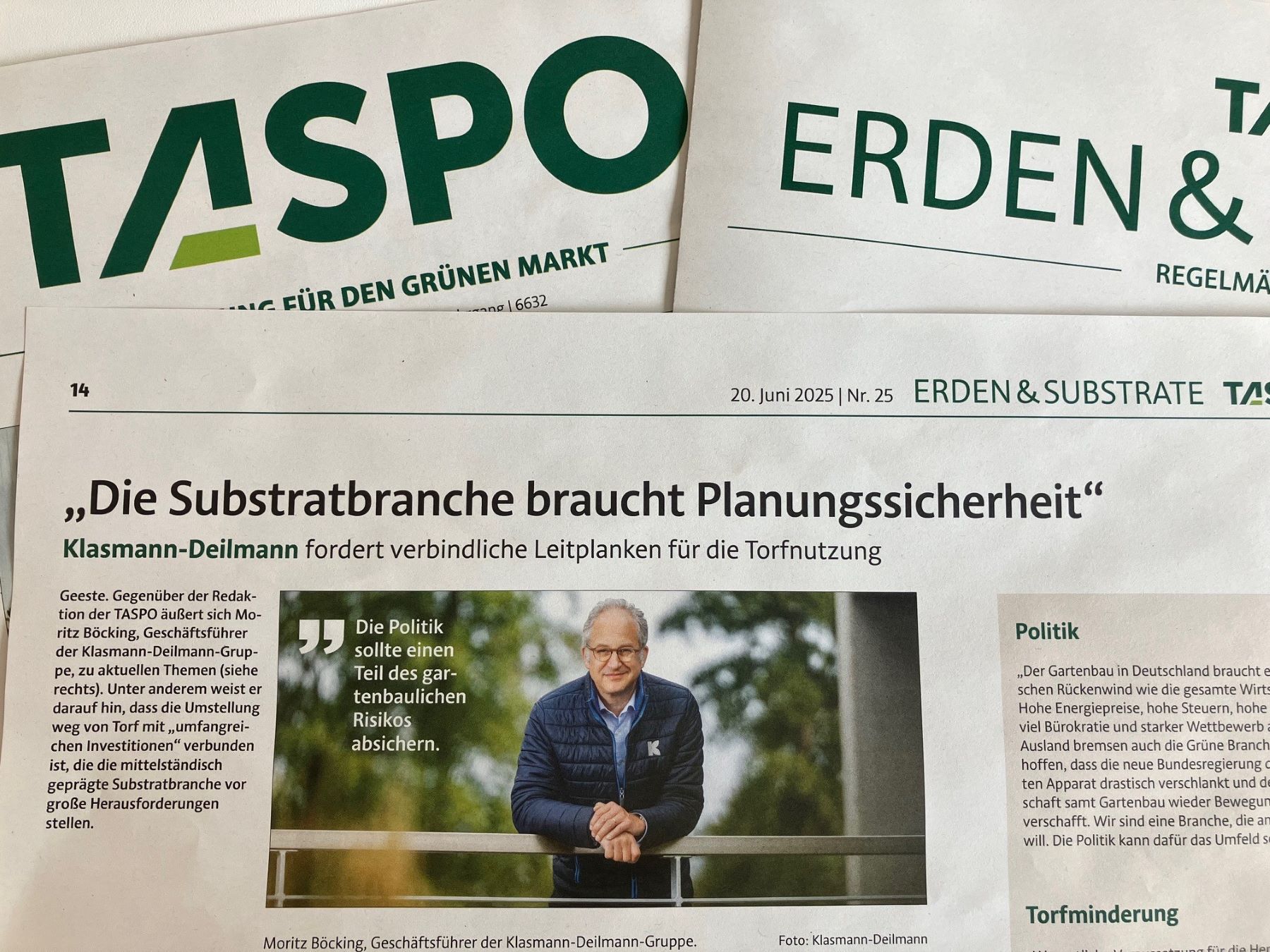A boost for horticulture
Moritz Böcking in TASPO
Klasmann-Deilmann was featured several times in the ‘Soils & Substrates’ special section of the TASPO trade journal at the end of June. Under the headline ‘The substrate industry needs planning security’, Moritz Böcking provided detailed commentary on important developments in horticulture. He called for reliable framework conditions and greater support from politicians. Given high energy prices, growing bureaucracy and fierce international competition, the horticulture sector is in urgent need of a boost. Moritz Böcking also emphasised the need for a roundtable discussion with all relevant stakeholders to establish binding guidelines for the use of peat and alternative raw materials.
Alongside the commentary, an article on TerraCoal was published. This article clarified that our innovative biochar improves the structural stability of substrates and actively contributes to climate protection.
Moritz Böcking: The substrate industry needs planning security
Politics: The horticulture sector in Germany needs a fresh boost, just like the rest of the economy. High energy prices, taxes and wages, excessive bureaucracy, and strong competition from abroad are slowing down the green sector. We hope that the new federal government will drastically streamline the entire system and allow the economy, including horticulture, to breathe again. We are an industry that wants to get things done. Politicians can create the right environment for this.
Peat reduction: The availability of suitable raw materials is essential for producing cultivation-safe substrates. Alongside peat, the substrate industry is securing access to wood, compost, coconut fibre, and other components, while also expanding its production capacities. However, this requires substantial investment, which poses significant challenges for our medium-sized industry. To create an economically and sustainably viable future, the substrate industry needs planning security. The new federal government should swiftly convene a roundtable meeting with IVG, ZVG and the relevant ministries to establish binding guidelines for peat usage and access to alternative raw materials.
Alternative raw materials: Klasmann-Deilmann secures the raw materials it needs through long-term supply contracts or by investing in its own production. In this respect, we cannot talk of shortages. However, further major steps on the path to reducing peat use are becoming more challenging. If peat substitution quotas increase significantly, additional resources will also need to be imported from abroad.
Research and development: Innovative substrates with optimised properties that guarantee crop security can only be developed through research and development. However, we have long since reached the point where we could achieve improvements across the board. Many substrate mixtures made from alternative raw materials have already been tested. The challenge now is to implement these findings across the board. This requires horticultural businesses to reconsider and adapt their cultivation methods. There are also concerns about potential failures and higher failure rates, which could lead to economic losses. If politicians want to make a meaningful contribution, they should mitigate some of the risk in horticulture.
Investments: This year, Klasmann-Deilmann is investing in a new factory and production lines in Germany. Our company is committed to using both peat and renewable raw materials. This advance investment will ensure the long-term supply of high-quality growing media to domestic horticultural businesses.
